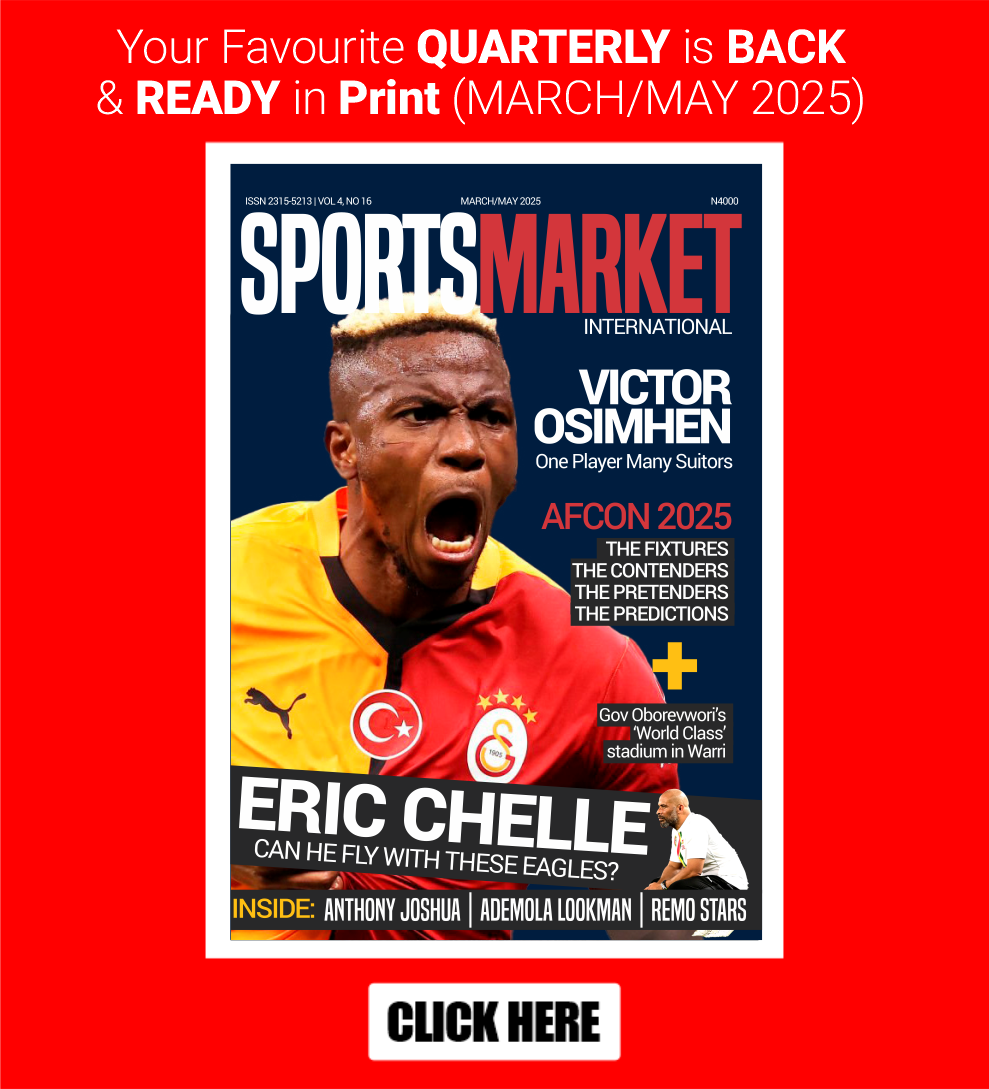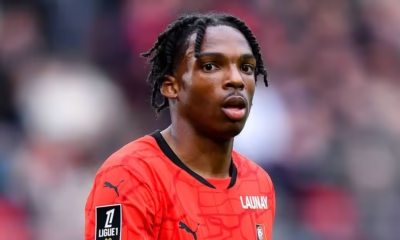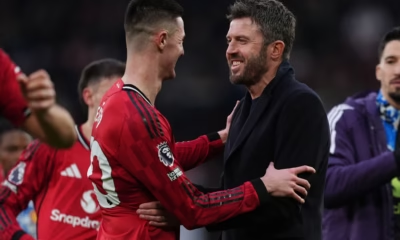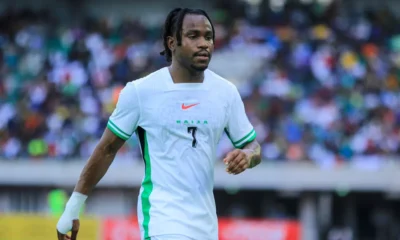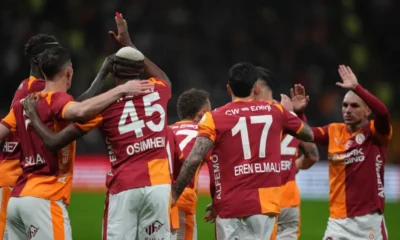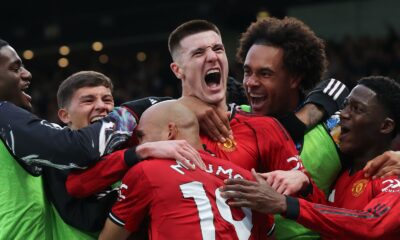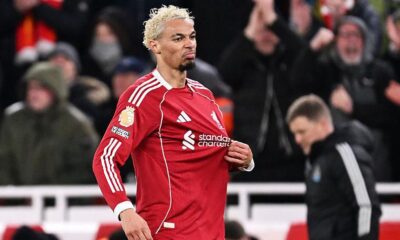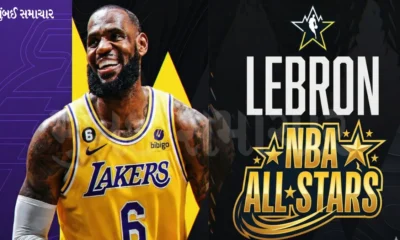Sportsmoney
Lionel Messi’s millions: The man, the brand and the money
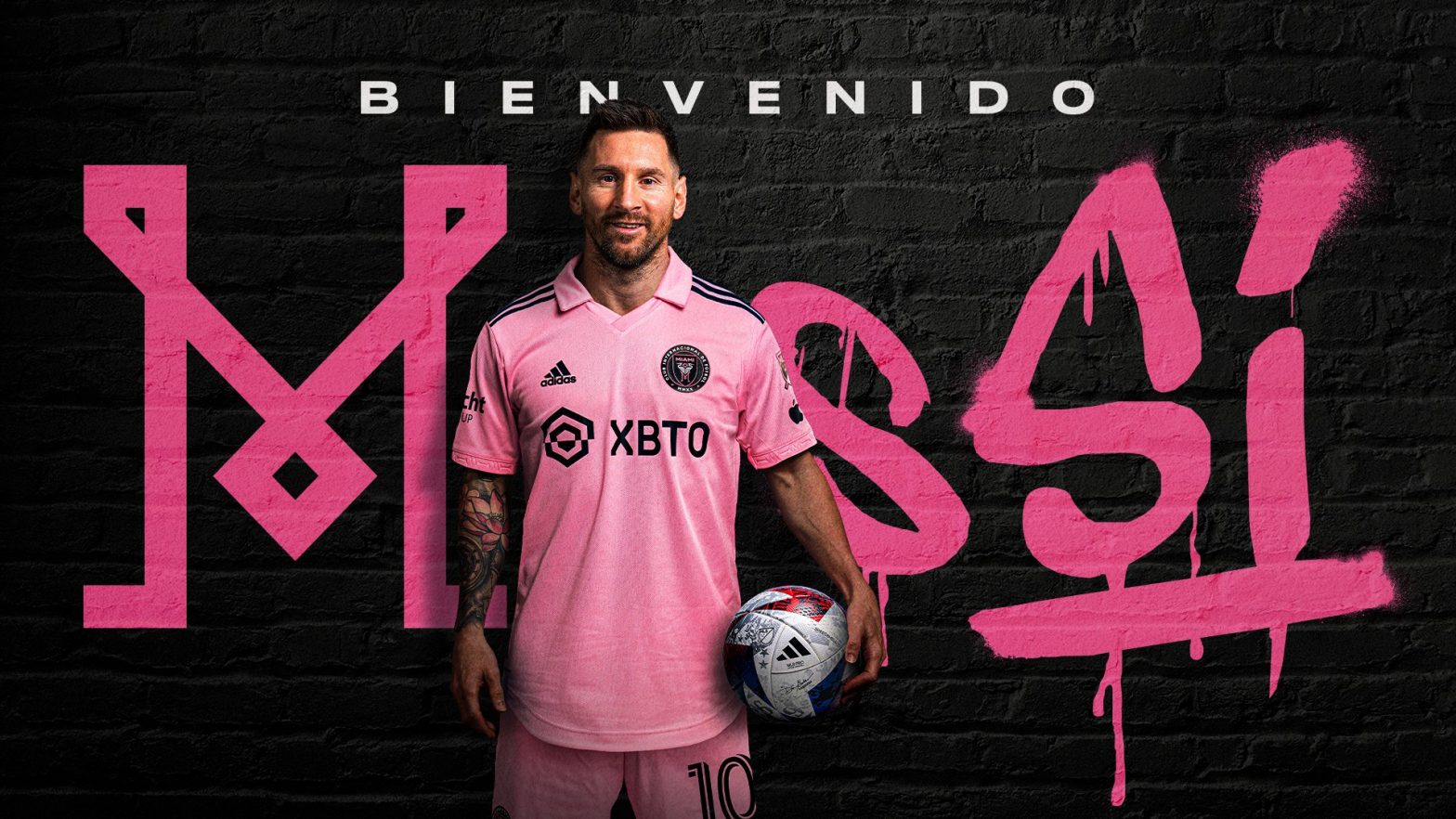
Money, in some form or another, has been a significant part of Lionel Messi’s story since the start. One of the reasons he left his first club, Grandoli in Rosario, was because his father turned up to a game without the two pesos entry fee and was denied entry.
His move to Barcelona was partly motivated by the failure of Newell’s Old Boys to pay for the growth hormone treatment that would ultimately enable him to become a senior footballer. He left Barcelona because they couldn’t afford even a fraction of his salary.
This is not to say that every step of his career has been defined by money, or even that he has always been particularly greedy, but you usually don’t have to look very closely to see the influence of hard currency. This is true of many players, but with Messi, the numbers are usually higher than anyone else.
That assessment at the top of this article, made by a figure who worked at one of Messi’s clubs in the past decade but who wished to remain anonymous in order to protect relationships, is instructive.
In some respects, Messi is now no longer an individual, he’s an industrial complex, a money-making machine loosely connected to the human being that picks his children up from school and plays with his dog. He isn’t just earning money for himself but, as Messi the brand, a large company upon whom many rely for employment.
But, of course, that human being exists. So what is the relationship between the human being and the money? And what is Messi really like?
For what it’s worth, more than one person The Athletic spoke to for this article — all of them speaking on the condition of anonymity to protect relationships — disputed the idea that his primary motivation is money. And maybe that is correct. Perhaps anyone who believes that Messi is greedy or is driven by the next payday is channeling their ire in the wrong direction.
Given that football is now irrevocably governed by money, you could make the (very free-market capitalist) argument that Messi is just a product of the game, if an extreme one. If someone is arguably the greatest player to ever live, they deserve to be remunerated accordingly, in line with the money the game is generating. Basically: don’t hate the player, hate the game.
However, the logic does falter somewhat when you realise the game isn’t generating that amount of money. Or at least Barcelona weren’t – they had slipped into around €1.5billion (£1.3bn; $1.7bn) of debt by the time he left in 2021.
Eyebrows were certainly raised in some quarters when Messi gave his tearful press conference upon leaving Barca. “People forgot the amount of money he took that basically bankrupted them,” said one source, who has previously worked with Messi.
Messi was not a victim of circumstances out of his control. He was not the sole cause of Barca’s financial issues but he was a significant contributory factor in them. So at this point, it’s worth assessing some of the details of that gargantuan contract he signed in 2017, the one that he attempted to extricate himself from in 2020, and ultimately the one that caused him to leave Barcelona.
In January 2021, a few months before he left Barcelona, Spanish newspaper El Mundo reported that if an assortment of conditions were met then Barca would pay Messi €555,237,619 (a little under £604m/$674m based on exchange rates at the time) over the four years of the deal. That included a signing bonus of just over €115.2million, plus a ‘loyalty’ bonus of slightly under €78m. His ‘basic salary’ was €72million a year, with additional bonuses based on things such as appearances, success in various competitions and individual awards.
It’s important to note that he wouldn’t have actually banked all of that money, because some of it was incentive-based and both he and the club didn’t achieve the relevant targets over the period of the contract.
Still, he did OK out of it, particularly considering that his first salary at the club, which was designed to cover his whole family too, was €120,000 a year. In a chapter about Messi in his book, Barca, the journalist Simon Kuper notes that he received nine pay rises during his time in Catalonia.
“I’m not sure anybody outside his closest circle really knows the true Messi,” says Cecilia Guardati, an Argentinian journalist who covered Messi’s career in Barcelona. “He’s very shy, a very ordinary guy really but living an extraordinary life.”
The impression that comes up again and again, from talking to people who know, have dealt with, or have observed him extensively, is that he is essentially a fairly unremarkable human being, anywhere apart from on a football pitch. Which is fine: most of us are fairly unremarkable. But most of us also happen not to be the greatest of all time in our chosen profession.
Those who have worked with him suggest he is perfectly pleasant, personable, will make small talk with people in dressing rooms and on photoshoots. He also speaks better English than he lets on, which maybe we will see more of in Miami.
But his outward persona is bland. He has, by rough estimation, barely ever said an interesting thing — in public — in his life. The writer John Carlin once said that he had interviewed Messi twice, but if he was offered a third he would turn it down.
Marcela Mora Araujo is an Argentinian journalist who has covered Messi for his entire career. “By contrast to (Diego) Maradona, who, if he was so much in the same city as someone, you could practically sense it… Messi is so different that you can be standing next to him and not realise (it).
“He’s not charming or bubbly or funny or erudite. I don’t think he’s ‘unremarkable’; I just think he’s not interested in anything other than football.”
To say the least, he doesn’t have a high-octane lifestyle.
Although, he and his wife Antonela went to see Coldplay in Barcelona earlier this year. He has spoken in the past about his routine in Castelldefels, the small coastal town in which he lived while he was at Barca, which involved taking his kids — Thiago, Mateo and Ciro — to school, training, coming home, resting, picking them up from school, dinner at home or at a local restaurant, early to bed.
There are rarely any reports of big nights out, at least not since the early days at Barca when he attached himself to notorious party animal Ronaldinho. “His centre is his family, which is always with him,” said Juanjo Brau, Barca’s former head of physiotherapy.
In Paris, he lived in Neuilly-Sur-Seine, a well-to-do area to the west of the city centre not far from Paris Saint-Germain’s Parc des Princes stadium. His kids went to the American School. In Castelldefels, he didn’t go out much. But in Paris, he was a little more able to go to a restaurant, for example, without causing too much commotion, given that, broadly speaking, Parisians pride themselves on being almost aggressively indifferent towards celebrities.
His favourite food is apparently a Milanesa, an Argentinian take on a breaded beef dish with tomato-and-cheese sauce. Early in his career, he didn’t take his diet particularly seriously, and there are stories about his near addiction to Coca-Cola. But at some point in his time at Barca, he changed his ways and adopted a more professional diet. Just like countless other footballers have done. Again: unremarkable.
He’s always been quiet. When he first arrived in Catalonia, some thought he was mute, he spoke so little. “We shared a room in Japan (on a pre-season tour) and he didn’t say a word, he was so shy,” said Xavi. Cesc Fabregas, who joined the club’s youth ranks around the same time as Messi, agreed: “He was very shy, he didn’t really talk to anyone.” But when you can play football like him, maybe talking isn’t necessary. “The game was his means of communication,” Pere Gratacos, a former Barcelona youth coach, told Kuper.
“He doesn’t need to speak,” the former Barcelona president Sandro Rosell told Kuper. “His body language is the strongest I’ve seen in my life. I’ve seen him with a look in the locker room that everyone knows whether he agrees or not with a suggestion. And that’s it. He is much more clever than people think — or what he transmits.”
“Messi, today, is still a normal guy despite the fact that the eyes of the world are watching his every move,” TyC Sports Argentina commentator Ariel Senosiain tells The Athletic.
“After all his success, championships, pressures and failures, he’s always stayed true to who he is. There’s a close-knit family around him and his parents have been very important to him. And, of course, there’s Antonela. He has a partner who lives like him. They’ve known each other since they were young kids. She knows that he’s the star, and yes, she has her own ventures and an important social media following, but if you cross paths with her, you’ll realise how down-to-earth she is.”
He occasionally shows some loose nod to a personality in public. Take him stopping an interview after Argentina’s win over the Netherlands at the World Cup to call Wout Weghorst “bobo”, which loosely translates as “silly” or “fool”.
Then there’s the interview he did alongside Luis Suarez in which they, for reasons slightly unclear, veered onto the merits of peeing sitting down. The interviewer was curious about the logistics of this, and after Suarez briefly floundered an amused Messi interjected to say: “You just point it down.”
Another hint towards a sense of humour was the famous ‘goat’ photoshoot from 2018. “We had a goat casting,” says Carles Carabi, the photographer who took the pictures. Carabi is on Team Messi’s approved list of snappers and has thus shot Messi more times than he can remember.
“The idea and concept came from Paper magazine. Apparently, he wasn’t sure about it, but his family — I think his brother — told him it would be cool to do, so he accepted it.”
But while he was up for the photo shoot, there wasn’t much by way of banter flying around.
“There’s zero conversation, really. In the past, I used to direct him a lot more, but now there are the shots with the body double, he comes on set and sees them, says ‘OK, let’s do it’ and he stands there, I give him a couple of instructions — stand here, look left, look right — but Jordi (his assistant) is directing him.
“There’s no room for small talk. I’ve been shooting him for seven years. He knows me, he’s nice, we shake hands, but that’s it. He’s usually fine, but not super enthusiastic. You can see he’s not having the time of his life, for sure.“
There’s an extraordinary story in the book Messi vs Ronaldo, by Joshua Robinson and Jonathan Clegg, that sums up not only the hold that Messi had over Barcelona but also how rabidly the Messi industrial complex (if not perhaps Messi himself directly) chased a payday wherever they could.
According to Robinson and Clegg, in 2017 Messi got it into his head that Barca should sign his Argentina team-mate Angel Di Maria, who at that point was playing for PSG.
Messi’s father Jorge, who has guided his career from the start, mentioned this to Josep Maria Bartomeu, but the then-Barca president wasn’t keen on signing Messi’s compatriot. In an attempt to placate his star, Bartomeu made a relatively derisory bid of around €30million, when the asking price was closer to €60million, so that he could tell Messi that he had at least tried.
Bartomeu solemnly returned to Jorge and reported that the approach was unsuccessful. Jorge asked how much they had offered, mulled things over and suggested that, since Barca clearly had a spare €30million kicking around, they should just give that to Messi. And what’s more, according to Clegg and Robinson: it worked. When Messi signed his frankly preposterous contract in November 2017, the one that he tried to get out of via the infamous burofax in 2020, the money was included as part of the various bonuses he was promised.
Forbes estimates that Messi earns around $65million from endorsements every year. That nicely tops up the same amount he received from PSG, putting him just behind Cristiano Ronaldo and just ahead of Kylian Mbappe as the highest-paid athletes in the world, leaving the likes of LeBron James and LIV golf’s Dustin Johnson in their wake.
The list of brands and companies that have exchanged the Messi seal of approval for a nice plump cheque is so long that it’s basically impossible to detail them all here, but we’ll have a go at listing as many as we can.
The big ones are Adidas (with whom he signed a lifetime contract in 2017), Pepsi and PepsiCo subsidiaries Lay’s and Gatorade, Louis Vuitton, Budweiser, MasterCard, the Qatari telecoms company Ooredoo and Indian tech firm Byju’s.
His partnership with the Hard Rock Cafe involved them sending him an electric guitar specially designed for him, and launching ‘the Messi Burger’ (two beef patties, provolone cheese, chorizo, caramelised onion).
You couldn’t move for Messi endorsements back home before the World Cup, putting his name and/or face to everything from underpants to mate, the bitter Argentinian tea you’ll often see South American players drink from a silver cup with a straw.
It’s not technically an endorsement because it seems to be one of his own productions, but let’s throw in “The Messi Experience” too, which is due to open in Nanjing, China next year and appears to be a sort of Messi theme park, with “10 different attractions that combine video mappings, animatronics, flying theatres, 360-degree domes, dark rides, VR experiences, an area with physical and interactive football-related games, scenic arts, a restaurant, a shop and general services”.
Then there are the inevitable crypto-adjacent deals with Leafty, Sorare, NFT marketplace Ethernity Chain, BitGet (these are all real companies, by the way), and the most recent big one was the $20million-a-year deal he signed with Socios, the “fan token” company about whom there are, it’s safe to say, a few questions to be asked.
Finally (although not definitively), there’s the ambassadorial deal agreed with the Saudi tourist authority, signed last year, detailed by The Athletic’s Adam Crafton last November. In theory, this was purely to promote tourism to Saudi Arabia, but realistically it was also to help with a future bid to host the World Cup, which is looking unlikely for 2030 – but keep your eye on 2034.
Where does all this money go? Well, mostly it’s hard to say, but he does have a foundation that funds projects to do with health and education around the world. He works with UNICEF. He donated around €1million to two clinics in Barcelona and Argentina during the pandemic.
The pertinent question is, if Messi is motivated only by hoovering up as much money as possible, why is he not following his own advice and travelling to Saudi Arabia, as most other footballers seem to be doing at the moment?
One reason is that Miami might simply be a preferable destination for family and lifestyle reasons. Miami has a large Latin American and Argentinian population (the 2020 census suggested that 70.1 per cent of Miami residents were Hispanic or Latino, with around 100,000 Argentinians living in the Miami-Dade/Fort Lauderdale area), he owns property in Florida and spends some time there anyway. It’s basically as close as you can get to being in South America without being in South America.
But there might be longer-term financial reasons too. Specifically to move into and later dominate the colossal American market. “Something has shifted in his ‘bigness’ in the US as a celebrity,” says Araujo.
“Playing there, having the proximity with the fans everywhere Miami will play, I think will make a big difference,” says Ricardo Fort, a sponsorship and marketing expert and consultant.
“That gives him a huge advantage, especially compared to Cristiano Ronaldo who is playing in the Saudi league, which is almost invisible in the U.S. From a commercial standpoint, I think there’s an even greater potential for him to sign more deals with American brands as the 2026 World Cup approaches.”
The financial details of his Inter Miami contract are not yet clear, although it does include an option to buy a stake in the club, as well as a share in the revenue from new subscriptions to Apple TV, which will broadcast MLS from next season. Crucially, those are two things that are expected to go up in value the longer he is there.
“He’s giving up on the short-term, sure-thing mountains of money that Saudi offered,” says Fort, “but betting that, over time, with the incremental rise in commercial deals, being in Miami will make up the gap in salary. And it might. With the benefit of having a lifestyle that is probably more favourable to his family.”
He won’t be going down the David Beckham route and looking to own his own team in years to come, though. “There’s no such a thing as a cheap MLS franchise anymore,” says Fort. “I think the days are gone when that sort of thing was possible… the prices will be astronomical. Too much for one individual or former player.”
Several sources have suggested that this is all leading up to the World Cup, that he will then retire and his time in America is geared towards capitalising on that for his post-career life.
The sense is that Messi is pretty passive when it comes to things away from football. He leaves the business things up to his team — which includes Jorge, his brother Rodrigo and Pablo Negre Abello, who was tempted away from Barcelona a few years ago to be in charge of all his commercial deals — then essentially does what he is told, sits back, and watches the cash flow in.
The impression of a man not especially in touch with his business affairs was certainly one that was presented in his tax evasion trial in 2016.
“I didn’t know anything,” Messi told the court in Barcelona. “I only worried about playing football.” Messi said that he never spoke to his lawyers, never asked any questions about tax, only had a loose idea about the sums of money involved and signed any contract that was put in front of him. “I signed them because I trust my father and it never entered my head that he would try to cheat me,” said Messi.
When it actually comes to carrying out the duties he is being paid for — on a shoot for an advert, for example — Messi is reluctant to do too much, no more than a day or so a month. But when there he is perfectly pleasant, engages with the people involved, makes small talk, although his team were described more than once as “a pain in the ass”.
Culled from The Athletic

-

 Premier League6 hours ago
Premier League6 hours agoLiverpool Stun Chelsea With £60m Jeremy Jacquet Transfer Twist
-

 News5 hours ago
News5 hours agoMichael Carrick Explains Mason Mount Absence In Manchester United Win Over Fulham
-

 Local News6 hours ago
Local News6 hours ago“Very, Very Happy”: Ademola Lookman Speaks As Atletico Madrid Player
-

 Local News6 hours ago
Local News6 hours agoOsimhen And Icardi On Target As Galatasaray Cruise Past Kayserispor
-

 Premier League6 hours ago
Premier League6 hours ago“The Best Feeling”: Manchester United’s Late Winner Rekindles Old Trafford Magic
-

 More Sports5 hours ago
More Sports5 hours agoJustin Rose Makes History With Record-Breaking Farmers Insurance Open Victory
-

 News36 minutes ago
News36 minutes agoWayne Rooney Tips Hugo Ekitike To Become Liverpool’s Main Striker After Standout Display
-

 Uncategorized17 minutes ago
Uncategorized17 minutes agoLeBron James Makes History With Record 22nd Straight NBA All-Star Selection


